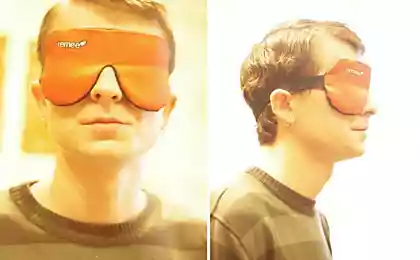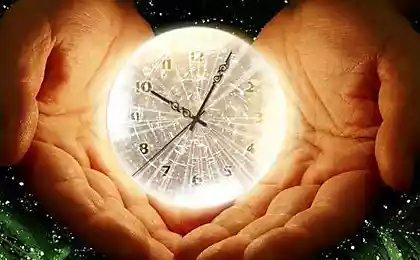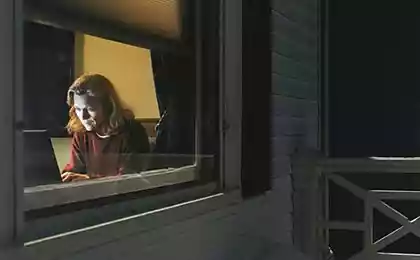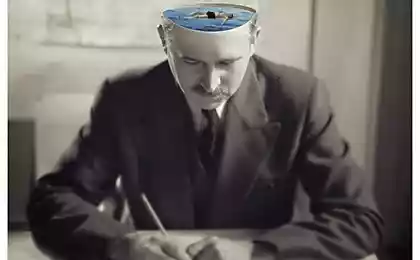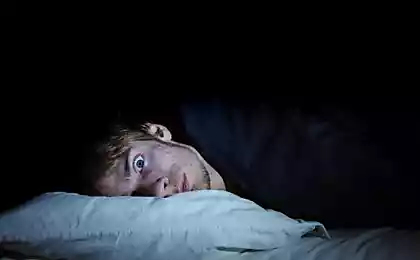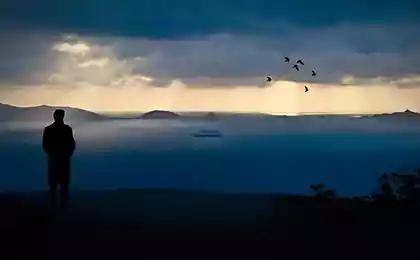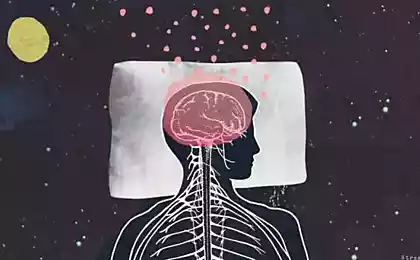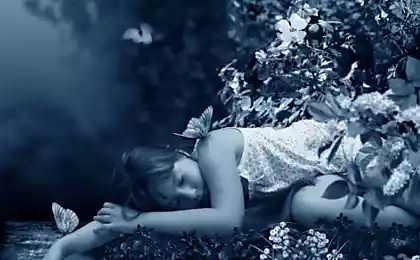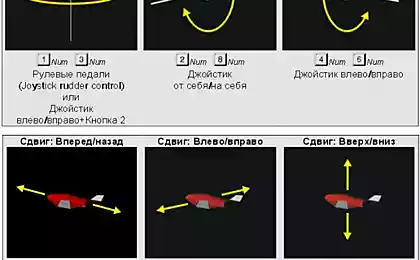2270
How did eight hours of sleep and why our ancestors slept twice per night
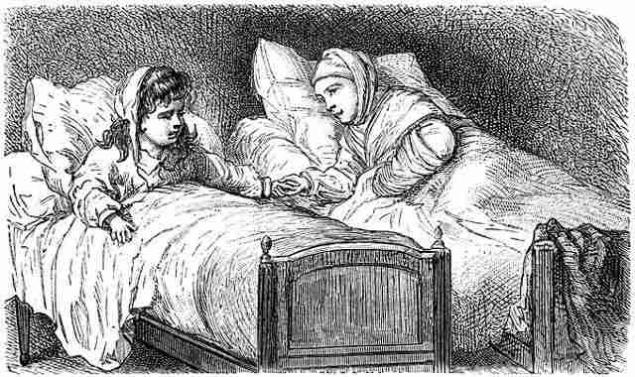
Eight hours of sleep is a modern innovation.
Imagine that you live in the 18th century. At 20.30 PM do you wear a nightcap, blowing the candles and fall asleep to the smell of wax and candle, gently fills the air around the bed. Sleep a few hours. At 2:30 a.m. Wake up, put on a coat and go to the neighbors to visit. They also do not sleep. Quietly read, pray or have sex. Because before the era of electricity per day sleep per night were distributed everywhere.
In those days, people slept twice per night, awoke a couple of hours in the night, and then went back to bed until dawn.
How to write on Slumberwise.com:
The existence of two of sleep a night for the first time revealed Roger Ekirch (Roger Ekirch), a history Professor from the University of Virginia.
His research found that we don't always practiced continuous eight hours of sleep. For people was accustomed to sleeping in two short period over a longer range of night, which covered about 12 hours. It was divided into periods: the first three or four hours of sleep, then two to three hours of wakefulness and sleep again until morning.
Mention of this routine in the literature, court documents and personal records. Surprisingly not even the fact that people slept in two shifts, but the incredible prevalence of this type night of rest. It was the standard, accepted way to sleep.
"The number and nature of references indicate that it was a well-known fact," says Ekirch.
For example, the English physician, wrote that the ideal time for learning and reflection is a period between "first sleep" and "second sleep". Chaucer Geoffrey's "Canterbury tales" wrote about a woman who went to bed after the "first sleep." And, explaining the reason for the large families in the environment of the working class, the doctor 1500 years notes that people usually had sex after the first sleep.
The book of Roger Acerca "At the end of the day. The story of the night" is replete with such examples.
But what did the people in these free hours of the night? By and large, everything you could think of.
The majority remained in their bedrooms and their beds, sometimes reading, often prayed. Even religious manuals included special prayers recommended to read between two periods of sleep.
Others smoked, talked to the man who bedded or had sex. Some were more active, visiting neighbors.
As you know, this practice eventually Silas. Acerc connects the change with the advent of electric lighting in the buildings and on the streets, as well as popular coffee houses. Writer Craig Koslofsky offers further reflections on this subject in his book "Evening's Empire" (Evening''s Empire). With the spread of street lighting, night stopped being the domain of criminals and sub-companies. This period was a time for work or socializing. Bimodal pattern of sleep eventually began to be perceived as inappropriate waste several hours of time.
Science supports recording in the history books. The researchers conducted a four-week experiment, which involved 15 men, living in conditions with limited daylight hours. With them began to happen something strange. Overtaking lack of sleep is a usual practice for most of us – the participants began to Wake up in the middle of the night:
They came with two benches.
Within twelve hours, participants are usually first slept about four to five hours, then woke up and was awake for several hours, then slept again until morning. In General, they slept not more than eight hours.
Period in the night between sleep segments was characterized by an extraordinary calm, like a meditative state. It's not like a flip design in bed that many of us have experienced. The participants of the experiment are not strained and not worried about waking, they are at this time relaxed.
Russell foster (Russell Foster), Professor of circadian neuroscience at Oxford, said that even with standard sleep awakening during the night – not a reason for concern. "Many people Wake up at night and panic. I explain to them that as they return to bimodal sleep," says the Professor.
Although the article noted that there is no advantage to sleep two times a night, it's hard to imagine that such a model of sleep have serious consequences for our everyday consciousness. How much benefit we could derive from several hours of "unusual calmness, similar to meditation"? In fact. I have not used the "bimodal" sleep, but I think that many of us, including me, have encountered him. With an insanely busy schedule we don't even consider the possibilities and advantages of other States of consciousness except the eight-hour sleep, which is caused by fatigue.
Of course, we can't go back to the way of life "to electrification" with the early bedtime and early rise. But maybe we could apply this knowledge to improve the quality of life and to explore alternative modes of mind and time.
This brings me back to the book, which I read recently.
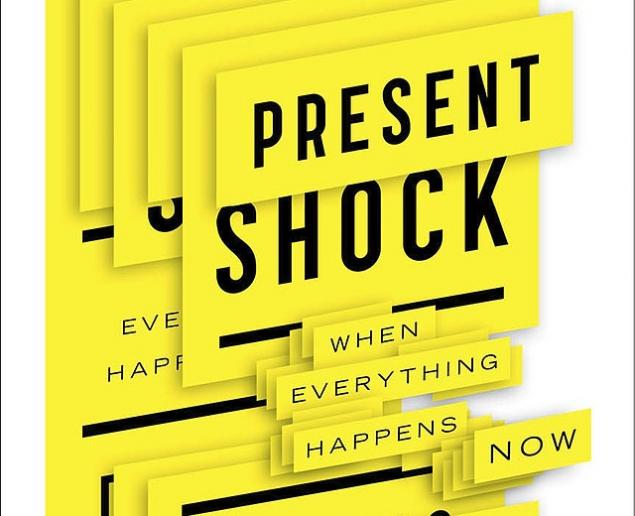
If you are interested in reading more about the modern world and its effects on our minds, adopt a book Rushkoff Douglas (Douglas Rushkoff) "present Shock: when everything happens now" (Present Shock: When Everything Happens Now).
"The fact that time is not neutral. Hours and minutes are not universal, and certain. Some things are easier in the morning, others at night. Moreover, the time of day changes based on the current time in dvadtsativosmidnevnogo lunar cycle. In one week we are more productive early in the morning, and next week in the afternoon.
Technology gives us the ability to ignore all those nooks and cracks of time. We can fly through ten time zones. To take sleeping pills to go to sleep when you reach your destination in the journey, later, to drink the drug from attention deficit disorder to Wake up the next morning...
Our technology can evolve at the speed with which we come up with. But our bodies evolved for millennia, interacting with the forces and phenomena we barely understand. We don't just have to take into account the rhythms of the body... the body is based on hundreds, perhaps thousands, of different hours, listening, communicating and synchronizing with many things. Human beings are not capable of such rapid development. Our bodies are changing on a very different timeline".
But, Rushkoff does not call for to discard their iPhones and abandon a digital lifestyle. It is for that figure out ways to promote technologies for the activation of our biology:
"Yes, we are in a chronobiological crisis of depression, suicides, cancer, low productivity and social discomfort due to the fact that willfully violate the rhythms that support us alive and synchronized with nature and with each other. But the fact that we learn, gives us the opportunity to turn a crisis into an opportunity. Instead of trying to retrain the body and to bring it into line with the artificial rhythms of our digital technologies, we can apply technology and combine your lifestyle with your own physiology".
Not sure I'll stick with bimodal sleep, but I definitely see the benefits from the new understanding of time and attempts to live in accordance with it. Time as quality. Duration. Aroma. One of my favorite philosophers of the 20th century, Jean Gebser (Jean Gebser), in 1949, wrote that the basis of the crisis of Western civilization lies the time. In his desire to conform to trends, we are involved in everything that happens at the same time. Perhaps this is the wrong approach. A wrong attitude towards time. Maybe we need to step back and be present; not to be subjected to the "shock" in the digital age that criticizes Raskoff, but to be present.
Our modern crisis with being "in the present" is no different from Zen kōan about drinking the ocean in one gulp. You can't do that, if you break time into small pieces of tiny ticks on the clock, email, notifications from Facebook and messages popiskivanie on the LCD screen. Just too much. But the problem of our information overload may actually not in the digital era, and in the mode of measuring consciousness, which we include. What do you think? And that will help us to cope with "flow" as it refers to James Gleick (James Gleick)?
Author Jeremy D. Johnson
According to the materials of disinfo.

